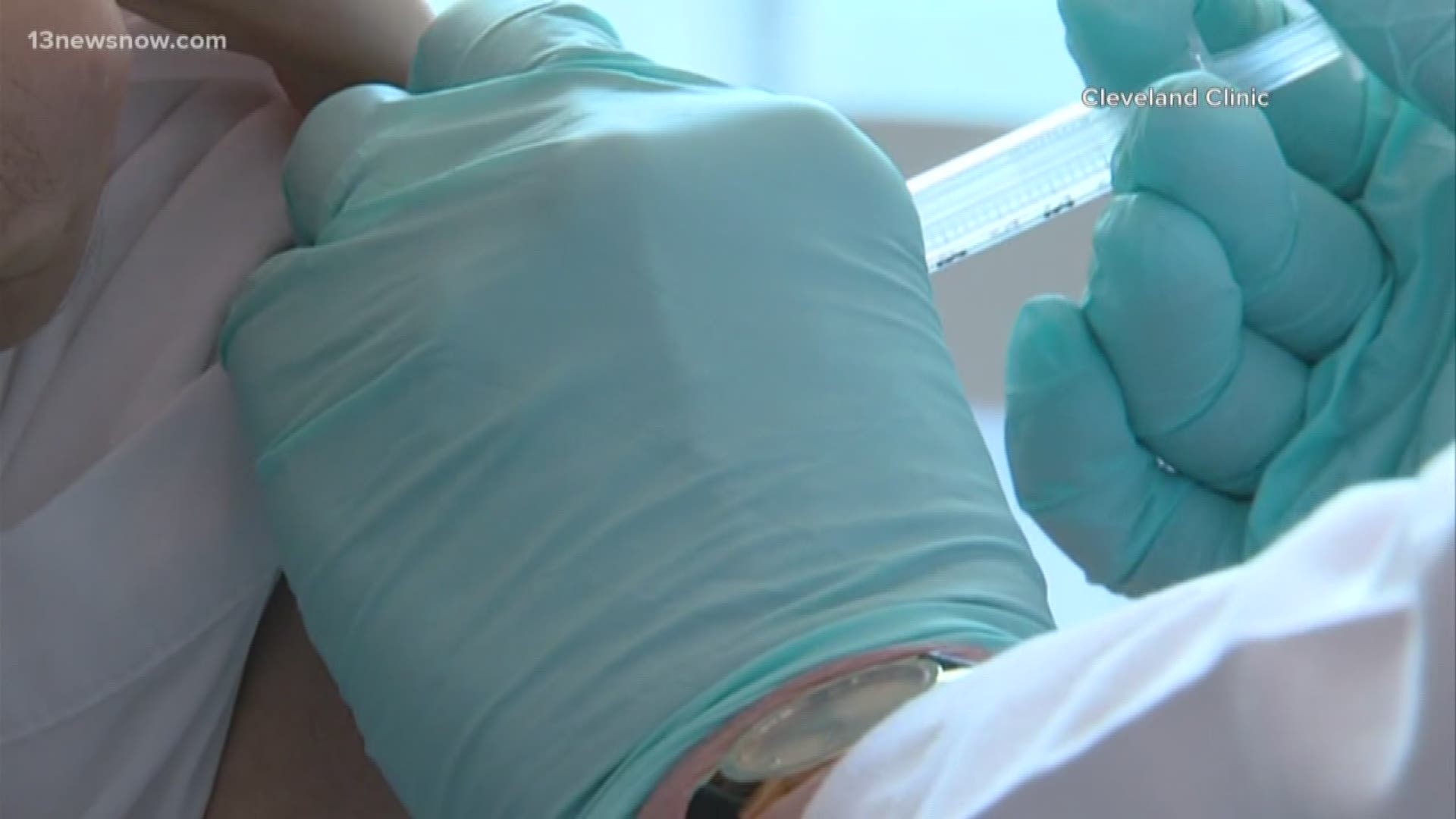VIRGINIA, USA — It's almost Spring, but flu season is getting worse for one key group: the elderly.
The Centers for Disease Control and Prevention (CDC) recently reported a shift, with influenza A(H-3) viruses reported more frequently.
Stephen Biggs, a Physician Assistant with Patient First said the trend is happening both nationally and here in the Commonwealth.
“It could be deadly,” said Biggs. “The risk is still extremely high. The flu is still widespread and we see no signs of it slowing down. This may continue for the next several weeks.”
While typical flu symptoms include fever, body aches or cough, a study from the Journal of the American Geriatrics Society warned nearly 26 percent of seniors with the flu didn’t show the usual symptoms. The elderly can experience different flu symptoms, such as weakness, dizziness, loss of appetite, and delirium.
“With the elderly, you really wanna watch for shortness of breath, any breathing issues other than just regular coughing and discomfort,” said Biggs.
So far during the 2018-2019 flu season, the CDC estimated up to 26,700 flu-related deaths. A 70 to 90 percent of those deaths were been among people 65 and older.
“Seniors, in general, have a weaker immune system and when they do get infected, their bodies don't respond like younger folks. That's why it’s recommended people 65 and older get the high dose of the flu vaccine, which has four times the antigens,” said Biggs.
Protecting yourself is critical.
“[Get] good nutrition, good sleep to keep your immune system strong. If you have a weak immune system, avoid being out in public spaces.
The CDC said it’s not too late to get the flu vaccine. As long as the viruses are going around, the vaccine can still protect individuals. The CDC said people older than 65 should get the flu shot, not a nasal spray vaccine.
If anyone starts to feel sick, they should get medical attention right away. Early intervention could be life-saving.

